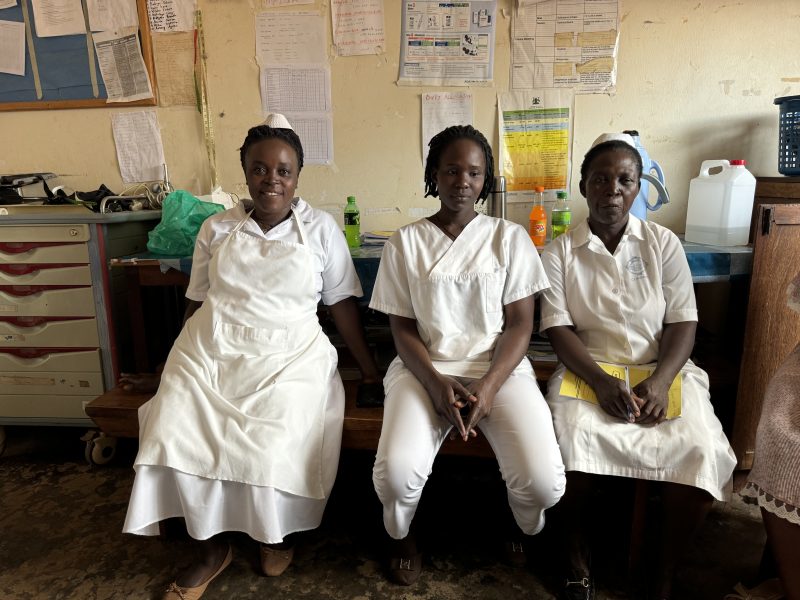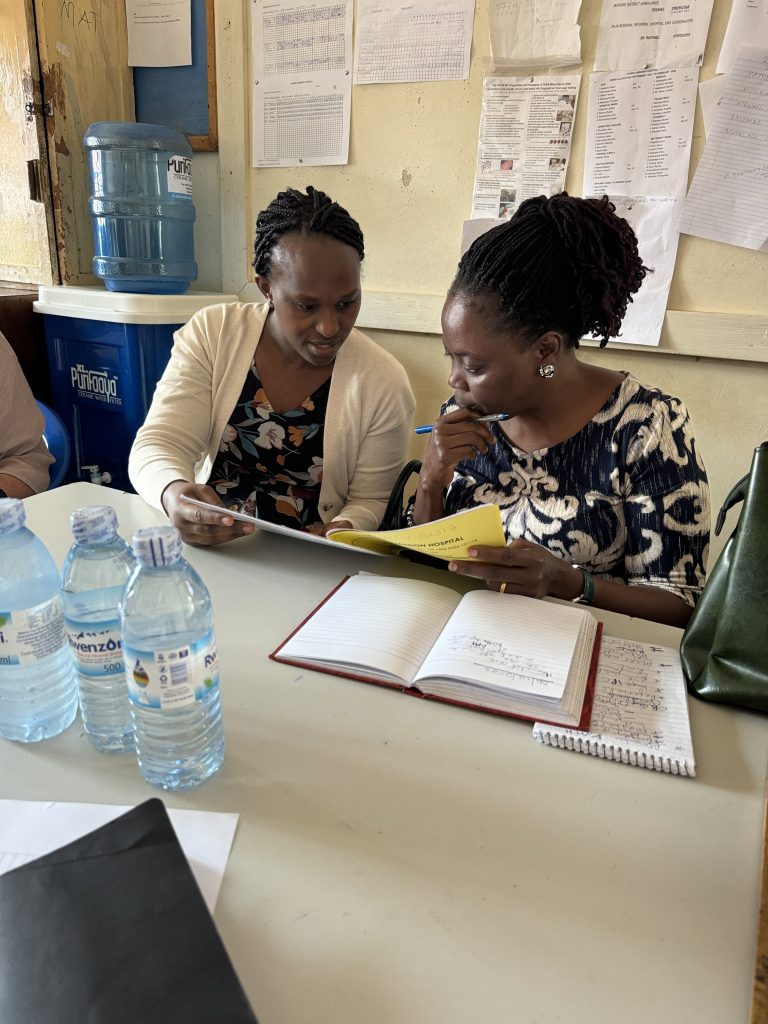
Introducing the use of CPAP in ALERT hospitals in Uganda
Midwife Mary is the head of the maternity ward at hospital 2 in Uganda, a role she has had for 18 years making her a highly experienced midwife. Three years ago, the ALERT project partnered with the hospital where she works to provide mentorship and training. After a team meeting with all the midwives and showing around the facility, we sat down to talk about how the experience with ALERT has been.
Mary tells about how the ALERT team led by Elizabeth Ayebare and Gertrude Namazzi that has taught her and the team many lessons and have been a great support through mentoring and training. When asked what the most valuable lesson has been she mentions CPAP.
“The most important thing we have learnt is how to use CPAP, we didn’t use it before, only free flow of oxygen, but they trained us how to use it which we now do” Mary says.
CPAP short for Continuous Positive Airway Pressure is a means of providing respiratory support to neonates with either upper airway obstruction or respiratory failure. It involves delivering normal air to your child’s airway at a set pressure. CPAP is most commonly used in newborns with breathing difficulties which occurs when a baby is born prematurely before their lungs have fully developed.
The ALERT project visited partner hospitals in Busoga region in Uganda for two years from January 2022 to December 2023 to train and mentor midwives and hospital staff on newborn care (care for the sick and preterm babies), intrapartum care (admission standards & procedures, intrapartum monitoring & documentation, infection prevention and control, and emergency preparedness) and respectful maternity care and compassion. During the mentorship visits, each of the 4 hospitals had an opportunity for a 3 day hands on intensive training on care for sick newborns and management of the special care unit.
Mary continues to tell the importance of freshening up knowledge and skills for maternal care. Through the trainings the team has practiced the use of CPAP, incubators, and administration of drugs. She describes how the midwives manage their work with more confidence and how the ward has seen improvements in care for mothers and neonatal survival. Specifically, she points out the administration of magnesium sulfate to mothers as a key factor for the improvement.
“We have learnt to give magnesium sulfate to mothers with preterm babies which has had a big impact on those babies surviving”, she says.
Magnesium sulfate is one of the most used medications in obstetrics, most notably for the prevention of eclamptic seizures and fetal neuroprotection of the extremely preterm neonate.



0 comments